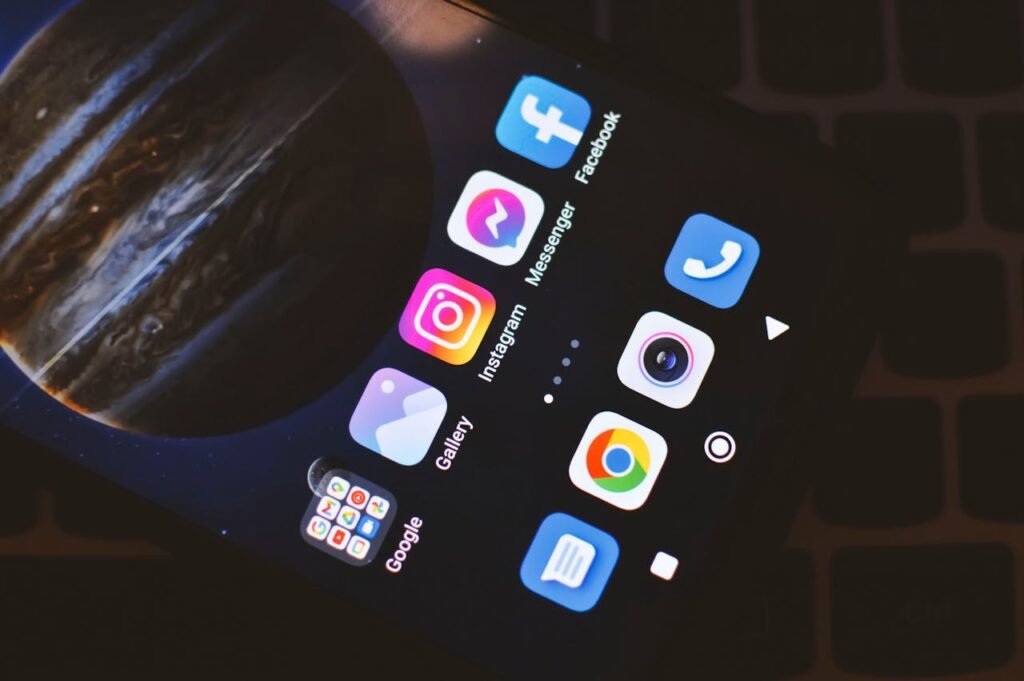Healthcare Marketing Is Evolving Fast
Healthcare marketing is evolving at breakneck speed. With patient acquisition, brand visibility, and practitioner reputation all on the line, the stakes for digital advertising have never been higher. In 2025, the three giants—Google, Meta, and IG (Instagram)—remain the backbone of paid digital strategies for hospitals, clinics, and healthcare brands. But while these platforms offer immense power, they also present unique challenges, especially for healthcare organizations working under strict regulations and with limited in-house digital expertise.
In this comprehensive guide, we break down how each platform earns (and loses) the trust of healthcare marketing directors and clinical leaders, what works, what frustrates, and what you can do to maximise your return while staying compliant and patient-centric.
The Exhausting Pace of Change in Healthcare PPC
If you’re a marketing director in healthcare, you know that running paid search or social ads is nothing like it was a few years ago. Artificial intelligence now touches every part of campaign management, from who sees your ads to how much you pay for each click or conversion. New features appear (and disappear) without warning. Data that used to be at your fingertips is now hidden, limited, or “anonymized.” Healthcare organizations must also manage GDPR, local advertising regulations, and heightened public sensitivity around privacy.
So, how are Google, Meta (Facebook), and IG stacking up for healthcare brands in 2025?
Google Ads: The Healthcare Giant That Demands—and Deserves—Your Attention
Too Powerful to Ignore
Why Healthcare Marketers Trust Google Ads
- Massive Patient Reach
- Smart Bidding & AI
- Data-Driven Targeting
But Here’s the Rub: Transparency and Control
Even with these advantages, healthcare marketers frequently feel like Google is a black box. You’re asked to “trust the machine” with less visibility into what’s actually working or why spend is increasing.
Recent Improvements
- Performance Max Insights
- More Reporting Detail
What Healthcare Marketers Love
- Precision Targeting
- Automated Recommendations
- Better Insights (Slowly)
Pain Points & Risks
- Limited Search Term Visibility
- Match Type Confusion
- Reporting Gaps
- Machine-Led Decisions
What to Push for (and Avoid)
- Demand More Transparency
- Beware Optimization Score
- Turn Off Auto-Applied Recommendations
Pro Tip
Keep a log of all platform changes and their effects. Not only will this help you maintain compliance, but it also provides leverage when asking your Google rep for more control or data.
Meta Ads: Unmatched Reach, But at a Cost to Control
Why Meta (Facebook) Still Matters in Healthcare
Meta’s Ads platform, Facebook, remains indispensable for healthcare organizations looking to reach new patients, drive event registrations, or nurture existing relationships with educational content.
Strengths
- Unmatched Audience Reach
- Diverse Ad Formats
- Advanced Targeting
But Control Is Slipping Away
Meta has increasingly pushed advertisers toward automated solutions. While these can improve efficiency, they also reduce your ability to fine-tune campaigns or explain why something is working (or not).
What Healthcare Marketers Appreciate
- Top-of-Funnel Performance
- Automation
- Massive User Base
Key Challenges
- Inconsistent Ad Approvals
- Opaque Reporting
- Sudden Platform Changes
- Lack of Manual Controls
What Healthcare Marketers Would Change
- More Consistent Approvals
- Offline Editor
- Slow the Rollout Treadmill
What to Watch
- Opt-In/Out Flexibility
- Back Up Your Strategies
Pro Tip
Treat Meta as a fast-moving environment. Document your learnings, regularly download performance data, and build contingency plans for campaign changes.
IG (Instagram): The Visual Powerhouse Gaining Ground in Healthcare
IG’s Rising Influence
While Instagram is part of the Meta ecosystem, it deserves a special mention—especially for healthcare providers targeting younger demographics or emphasizing brand storytelling.
Why IG Works for Healthcare
- Visual Storytelling
- Engagement-Driven
- Influencer Partnerships
Platform Pros
- Simplicity
- Quality Engagement
- Consistent Experience
Common Frustrations
- Audience Overlap
- Limited Local Targeting
- Algorithmic Mysteries
Opportunities for Improvement
- Audience Segmentation
- Transparency in Results
What to Remove or Revise
- Default Automation
- Unwanted Creative Enhancements
Pro Tip
Monitor IG Insights weekly, and be ready to adjust quickly. Always review ad previews to ensure clinical accuracy.
Trust Is Earned Through Clarity and Control
In 2025, healthcare marketers don’t need perfection—but they do need partnership. Google, Meta, and IG each have their strengths, but the platforms that win healthcare trust will be those that:
- Provide clear reporting and transparent data
- Offer manual controls for regulated campaigns
- Communicate changes clearly and ahead of time
- Allow for real opt-outs on automation and recommendations
Your Action Plan: Why the Right Agency Matters More Than Ever
Medical and marketing directors don’t have time to micromanage ad platforms, track policy updates, or decode algorithm changes. In 2025, the smartest move isn’t doing more—it’s choosing an agency that knows healthcare marketing inside and out.
Partnering with a specialized, healthcare-focused agency like UpMedico reduces risk, saves time, and ensures your campaigns stay compliant, effective, and patient-focused.
What You Still Need to Know (Even If You’re Not Doing It All Yourself):
✅ Choose Expertise Over Guesswork
Many agencies claim to understand healthcare—but few actually do. Choosing the wrong partner can expose you to compliance issues, wasted ad spend, or tone-deaf messaging. Ask hard questions. Make sure your agency understands HIPAA, clinical workflows, and patient trust.
✅ Delegate, But Stay Informed
You don’t need to run the ads—but you do need visibility. A reliable agency should give you easy-to-understand reports, flag compliance risks, and explain how campaigns support real patient engagement—not just vanity metrics.
✅ Push for Patient-Centric Strategy
Click-through rates and impressions are easy to inflate. A good agency will prioritize meaningful metrics—appointments booked, patient forms submitted, community trust earned.
✅ Insist on Platform Accountability
Your agency should be tracking changes in Google, Meta, and Instagram—so you don’t have to. They should advocate on your behalf, push back when platforms overreach, and adjust strategy proactively.
Final Thoughts: Moving Forward with Confidence
Digital advertising is both a science and an art, especially in healthcare. While Google, Meta, and IG offer powerful tools, it’s your expertise, documentation, and advocacy that ensure your campaigns deliver value—safely, compliantly, and with a human touch.
Stay curious, keep learning, and remember: platforms will always change, but patient needs remain constant. Let clarity, control, and trust guide your digital marketing strategy in 2025 and your digital marketing strategy in 2025.






